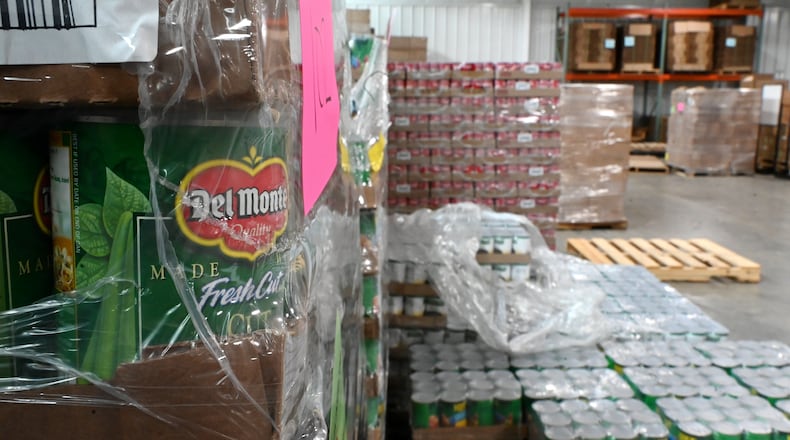Due to the federal government shutdown, benefits for the Supplemental Nutrition Assistance Program, or SNAP, were suspended for the month of November causing food banks and food pantries to wonder how to keep their shelves filled.
Ohio Gov. Mike DeWine reaffirmed a plan on Thursday that he announced last month to provide up to $25 million in support of food assistance to families affected by the suspension of SNAP benefits.
The first part of the plan was directing the Ohio Department of Job and Family Services to provide $7 million to regional food banks across Ohio. Shared Harvest Foodbank will receive $1.43 million, according to the governor’s office.
Shared Harvest Executive Director Terry Purdue said the foodbank “holds a contract for not just our food bank but four other food banks in Ohio covering a total of 31 counties.”
“The region served by Shared Harvest (Butler, Warren, Preble, Darke, and Miami counties) is allocated $299,668,” he said. “The balance of the $1.4M is allocated to the other food banks who serve an additional 26 counties.”
The food bank is also a member of The Feeding America Network and The Ohio Association of Foodbanks.
DeWine’s plan also directs Ohio JFS to provide up to $18 million in emergency relief benefits to more than 63,000 Ohioan recipients of Ohio Works First (OWF), a program that provides needed assistance for extremely low-income families with children. This program serves more than 57,000 children.
If the shutdown continues through November, DeWine’s plans “would effectively double the monthly OWF benefit for OWF recipients,” according to a governor’s office statement.
These families are set to receive their typical monthly OWF allotment, plus an additional weekly benefit equaling 25% of their typical monthly OWF allotment.
The weekly payments will last up to four weeks or until federal SNAP funding resumes.
OWF recipients should have received their first installment of emergency relief benefits this past Friday.
The Ohio Department of Health received $10.3 million on Tuesday from the USDA to continue WIC benefits. This funding allows the state health department to continue to offer food benefits to eligible mothers, infants and children into December.
Ohio mothers, infants and children can receive supplemental, highly nutritious foods such as cereal, eggs, milk, yogurt, cheese, whole grain foods, fruit and vegetables, peanut butter, beans, fish, and iron-fortified infant formula.
WIC helps eligible pregnant and breastfeeding women, women who recently had a baby, infants and children up to 5 years of age through supplemental nutrition, nutrition education, and referrals to prenatal and pediatric healthcare, and other maternal and child health and human service programs.
About the Author

